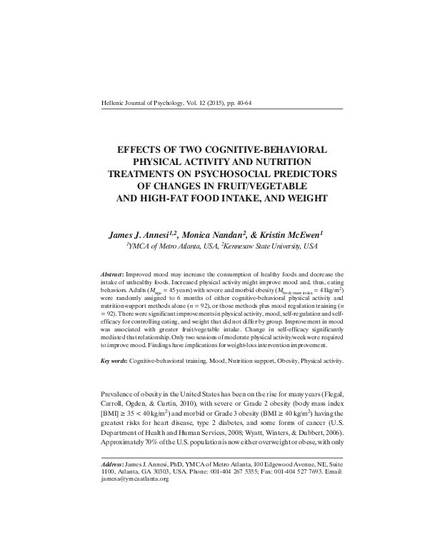
Improved mood may increase the consumption of healthy foods and decrease the intake of unhealthy foods. Increased physical activity might improve mood and, thus, eating behaviors. Adults (Mage = 45 years) with severe and morbid obesity (Mbody mass index = 41kg/m2) were randomly assigned to 6 months of either cognitive-behavioral physical activity and nutrition-support methods alone (n = 92), or those methods plus mood regulation training (n = 92). There were significant improvements in physical activity, mood, self-regulation and selfefficacy for controlling eating, and weight that did not differ by group. Improvement in mood was associated with greater fruit/vegetable intake. Change in self-efficacy significantly mediated that relationship. Only two sessions of moderate physical activity/week were required to improve mood. Findings have implications for weight-loss intervention improvement.
